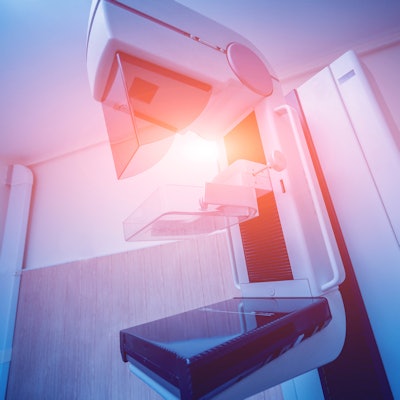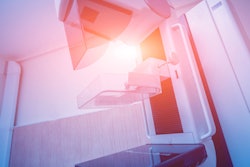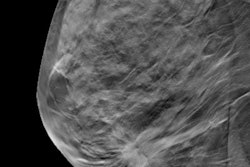
Should women with a family history of breast cancer qualify for additional screening mammography? A study published on 24 December in the Breast found these moderate-risk patients underwent more mammograms and had a higher rate of screen-detected cancers than their lower-risk peers.
The results came from a German population-based study that included 3,813 women diagnosed with breast cancer and 7,341 case-matched controls. Patients with a family history of breast cancer had a higher rate of cancers detected on imaging and cancers that were a smaller size at diagnosis.
The findings suggest the higher cancer detection rate may be tied to the additional screening rather than family history, according to the authors.
"Screening was associated with improved survival after a breast cancer diagnosis, irrespective of a positive family history," wrote the authors, led by Dr. Katharina Seiffert from the University Medical Center Hamburg-Eppendorf in Hamburg, Germany.
The study focused on women in two regions of Germany who were diagnosed with breast cancer between the ages of 50 and 74 and who were compared with case-matched controls. The authors analyzed trends in screening, diagnosis, and mortality for the two cohorts.
| Screening trends for breast cancer patients with and without a family history of breast cancer | ||||
| Second-degree relative with breast cancer | First-degree relative with breast cancer | |||
| Control cases | Cases with family history | Control cases | Cases with family history | |
| 10+ lifetime mammograms | 27% | 34% | 25% | 43% |
| Cancer detected on imaging | 34% | 43% | 33% | 49% |
Women with a family history of breast cancer had a higher number of mammograms than those without a family history of breast cancer. The authors hypothesized that this could be because this population may have a higher awareness about the importance of screening.
Furthermore, women with a family history of breast cancer were more likely than their peers to have their cancer detected through a mammogram or breast ultrasound scan. They were also more likely to have a smaller tumor size at diagnosis, no lymph node involvement, and better overall and breast cancer survival.
However, getting regular mammograms also appeared to have benefits on its own. Women with at least 10 mammograms had significantly improved survival, both overall (5% versus 20%) and from breast cancer (5% versus 15%), regardless of whether or not they had a family history of breast cancer. Getting regular mammograms and having breast cancer detected through imaging were also both significantly associated with overall survival, even after the authors adjusted for tumor characteristics.
The study had the limitation of relying on retrospective data, but the authors said their findings still support the value of breast screening. The results also raise the question about whether women with a family history of breast cancer may benefit from additional screening.
"Our results only show that ... mammography screening is beneficial with respect to survival and this holds whether or not the women had a positive family history," they wrote. "Regular mammography screening is associated with improved survival because of the more favorable tumor characteristics of screen-detected tumors."



















